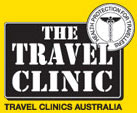Disability is no longer a contraindication for travel and those with chronic illness or physical disabilities are finding it increasingly easy to move to most places on the globe.
- Wheelchairs and aircraft seating need to be arranged well before travel
- For those with low vision, special arrangements need to be made for guide dogs
- If your hearing is reduced, use visual cues in order to avoid accidents from quiet vehicles such as electric luggage trolleys at airports and bus stations
- Travellers with chronic illness or immunodeficiency (such as with diabetes or on medication for organ transplants) need to carry a letter from their doctor detailing their medical conditions and medications
- People with intellectual disability need to be self-sufficient or accompanied by someone familiar with their needs
- Continuous oxygen can be arranged for the appropriate medical indications such as chronic airways disease
- Carry a Medic-alert tag
- Obtain information on medical facilities in the area you will visit.
There are many resources now available both in print and on the web to help organise a trouble free trip.


